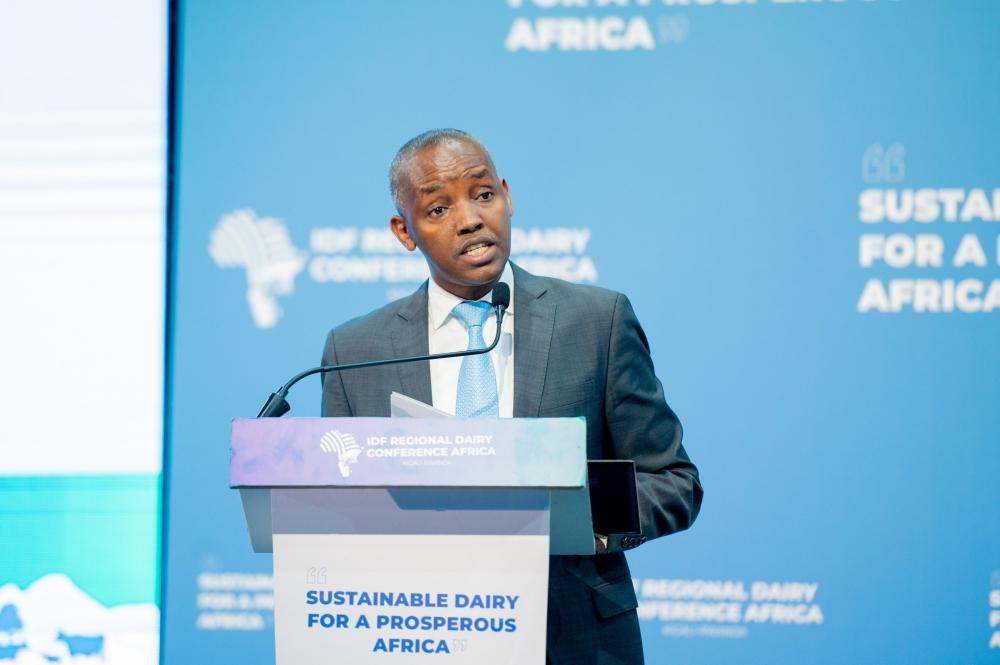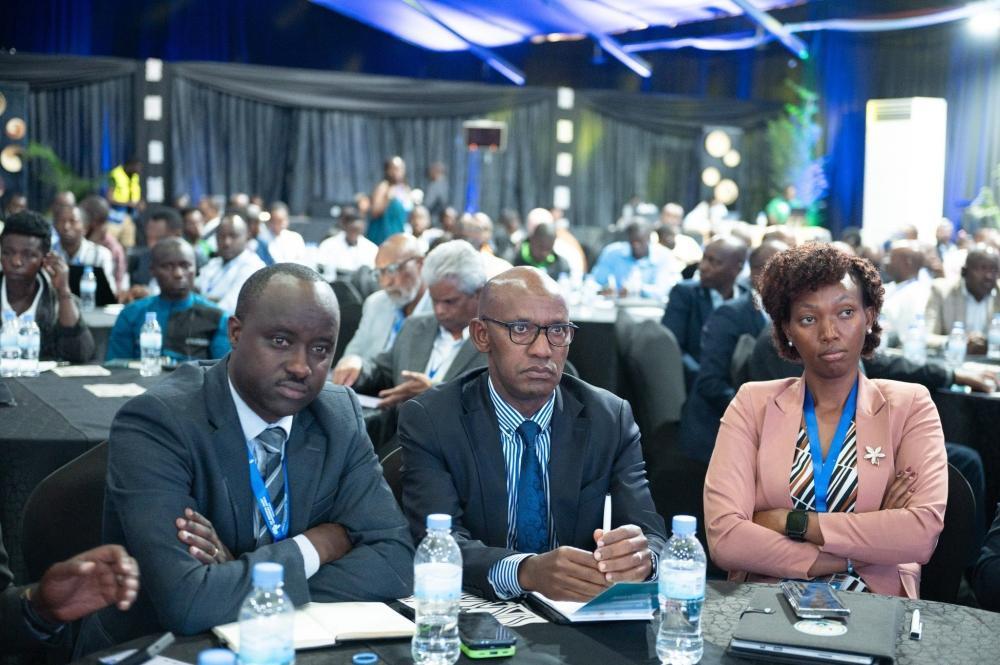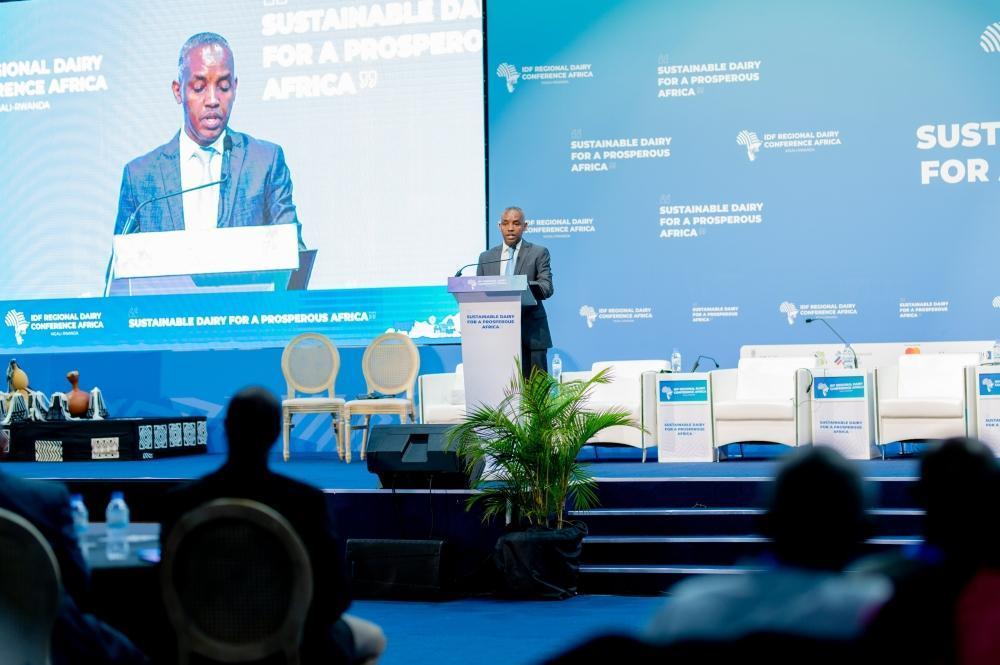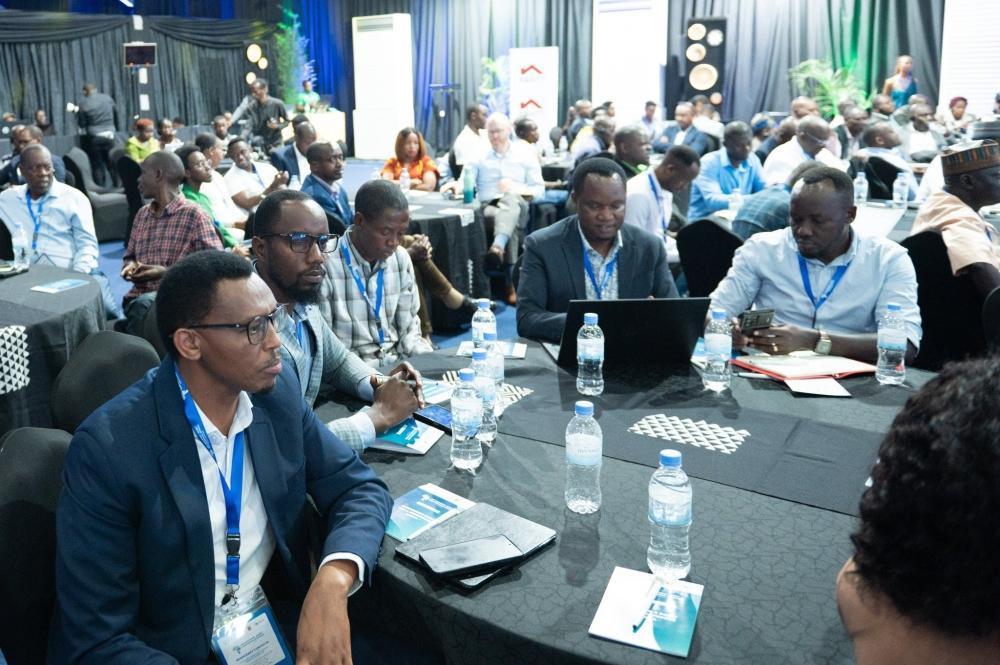Africa-Press – Rwanda. Africa’s prosperity is closely tied to how countries manage and modernize their agricultural food systems, said Eric Rwigamba, the State Minister for Agriculture and Animal Resources.
He made the remarks on Sunday, June 1 in Kigali, during the closing ceremony of the International Dairy Federation (IDF) Regional Dairy Conference Africa 2025, the first of its kind to take place in Africa, held under the theme “Sustainable Dairy for Prosperous Africa.” June 1 is also World Milk Day.
“There’s no doubt that milk is very important, essential for nutrition, economic development, sustainable food systems on our continent and beyond,” said Rwigamba.
“Sustainability in the dairy sector is not a luxury, but a necessity. It’s not only for protecting our environment, but also for fostering economic transformation, public health, and social inclusion. Our collective ability to build a prosperous Africa is closely tied to how we manage and modernize our agricultural food systems.”
Rwigamba stated that Rwanda has witnessed how policy-driven investments, stakeholder coordination and innovation can enhance milk production, improve safety and equality, and empower smallholder farmers.
Delegates at the closing ceremony of the International Dairy Federation (IDF) Regional Dairy Conference Africa 2025
“Through initiatives like One Cow per Family, national milk hygiene campaigns and strategic public-private partnerships, we are working to ensure that every drop of milk adds value to our people’s health, income, and our national economy.”
Rwanda’s milk production more than tripled from 334,727 tonnes in 2010 to more than one million tonnes in 2024, while per capita milk consumption doubled to about 80 litres.
However, the minister acknowledged that no single country can do it alone, and called for everyone’s efforts in the transformation of Africa’s daily sector across the borders.
Sarah Ossiya, representing Dr. Huyam Salih, Director of the African Union Inter-African Bureau for Animal Resources (AU-IBAR), commended the deliberations of the conference and emphasized that it was time for Africa to take charge and create solutions with an African perspective.
“Now is the time for Africa to own this space, to emerge and position and shape its multi-billion-dollar dairy sector to deliver nutrition, jobs, incomes, businesses, economic growth, climate resilience and stability,” she said, stressing the need for investments in the form of public-private partnerships.
She noted that success will be measured as quality, affordable dairy products available for all, meaning for those with purchasing power and those who need dairy products but cannot afford them.
Ossiya urged Rwanda to champion the realization of this ambition in the diary sector.
Cynthia Mulindi, representing the conference rapporteurs, outlined strategies to transform the sector, pointing out that locally, Rwanda’s Ministry of Agriculture is urged to implement structured feed and fodder systems and leverage digital tools for real-time farmer support.
“Promoting climate-adapted, disease-resistant breeds and quality-based milk payment systems will incentivize farmers to improve milk quality,” she said.
She added that tailored financial products with low interest rates and expanded training in animal health and husbandry are also critical.
Mulindi noted that the African Union is tasked with curbing milk dumping and aligning policies with the Malabo Declaration to bolster nutrition-focused dairy value chains, including school milk programmes.
“We must harness dairy to end malnutrition and strengthen food systems. Globally, fostering partnerships and advancing technology in breeding and disease control will amplify the sector’s impact,” she said.
The conference recommended that African parliaments be empowered to align laws and budget with the Compound Agreement goals, and invest in inclusive nutritional-focused dairy value chains, including school milk feeding programmes to improve access to safe, affordable dairy, end malnutrition especially, among children, and strengthen food systems.
For More News And Analysis About Rwanda Follow Africa-Press










